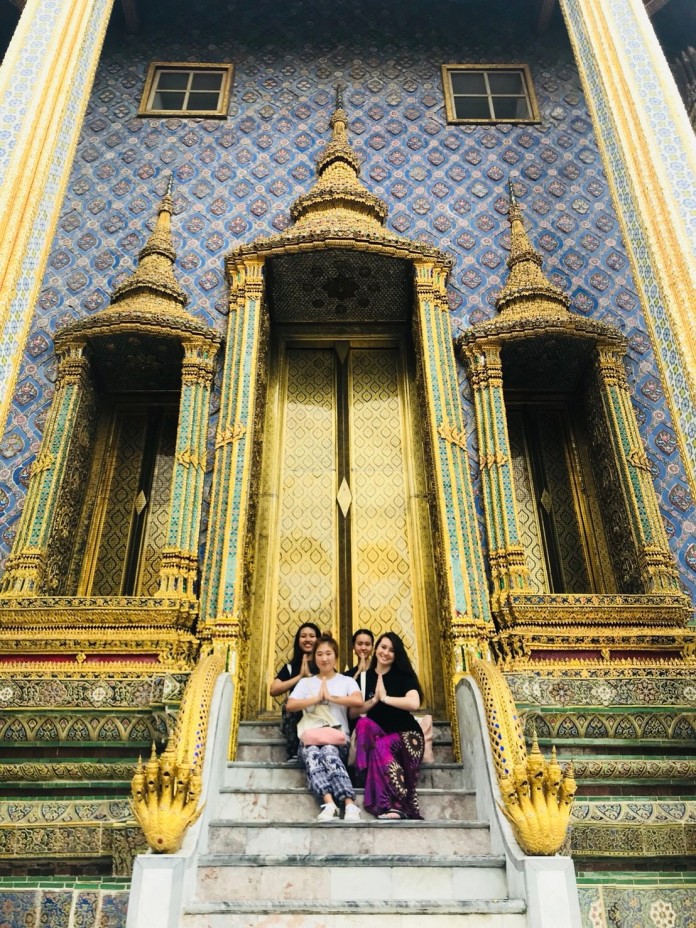For those who study abroad, traveling might be one of the options to have fun, since it can be an once-in-a-lifetime opportunity. However, some of us might have budgetary restraints, and not know how to plan for our travels. In this article, Made Ayu Sayaka, who happens to be a travel junkie, gives some advice on traveling as a college student; from managing your budget to arranging your itineraries.
When I first started college, I had one goal in mind: to travel a lot. I travelled with the money I saved up during college. I always aim to travel to at least one place per semester break. So far I’ve been to Korea, Australia, UK, Scotland, Thailand, Japan, Singapore, and for Indonesia, Yogyakarta, Jakarta, Aceh, Medan, Bali (home), and I plan to travel to more places. This is my guide on traveling as a college student.
1. Save up during the term, and spend it during the break
My friends back home keep asking me on how I manage to afford to go traveling. And the answer to that is by saving up! You should save up during the school term for traveling during the school break. That is what my friends and I always do. We would work part-time jobs during the school term, and save up around 1 million rupiahs per month, so by the end of the semester we would have just enough to travel somewhere. The key is budgeting. If you don’t know how to budget yet, then the 50-30-20 rule is a good start. Basically, 50% of your monthly income should be spent on “needs”– food, housing, groceries, etc. The 30% should be spent on “wants”– shopping, dining out with friends. The rest, 20% of your income– should be saved. So, say I earn 6 million rupiah per month, I would use 3 mil for my needs, around 1.8 mil for wants, and save 1.2 mil. What I do is I separate my bank accounts into 2: my savings account and my monthly budget. Each month, I’d take out 20% of my monthly income and move it to my savings account, which I can’t touch. I can only spend the money from my monthly account. Then, after the semester ends, I’d use the money from my savings account to travel.
People tend to think that if you travel a lot, then you must be rich. I disagree. Most people aren’t rich, they just saved up enough money to travel. I use my own money that I earned to afford my travels. My friends aren’t rich either, which is why we do part-time jobs. Part-time jobs for college students in Indonesia isn’t common, but it’s normal here in Japan and/or in many other countries. If you can’t do part time jobs, then you can do freelance jobs, private tutorings, etc, to earn extra money.
2. Traveling on a budget
Traveling does not always have to be expensive. Here are several ways you can do to make it cost less and fit for a college student’s budget.
- Pick your accomodation wisely
Airbnb is the cheaper option in a lot of countries. It could cost half the price of a hotel. Nowadays there are so many airbnbs. Especially if you’re planning to stay for a quite long time (2 weeks or more) you’ll get discounts and it’ll be even cheaper. Plus, you get to meet the local people if you stay there, which means a more authentic experience.
However, it also depends on the purpose of your travel. If your main reason to travel is to explore, then get a cheaper Airbnb/hotel. You will be out exploring the entire day and you’re just going to stay in a hotel just to sleep, so getting a nice hotel might not be worth it. But, sometimes you might travel not necessarily to explore, but to relax. For this purpose, get a nicer hotel because you will spend a lot of time relaxing at the hotel.
The cheapest option out of all is to stay at someone’s house. If you have a friend who lives in your travel destination, ask them if you can stay there for free. If you get to stay for free you can cut back on your traveling cost immensely. But remember to ask ahead and don’t be pushy.
To conclude, don’t forget to check airbnbs, hotels, hostels, etc.– and compare which one suits your budget and needs the best.
- Get cheap flights
For flights, Low-cost Carriers (LCC) are often uncomfortable and less reliable, but they have the best offers. When traveling with friends, I always use LCC because they cost a quarter than the normal airlines. There are many drawbacks though– you get less spacious seats, you don’t get meals on board, the luggage restrictions is very strict so you’ll often end up having to pay for extra luggage space, it’s very hard to change your flight dates, etc etc. But there are many ways to get around these limitations. I would eat a lot before boarding so I don’t have to buy overpriced airline food. Share luggage with friends. For LCCs, usually you get one carry on and you have to pay if you want a checked baggage. What my friends and I usually do is to buy one checked baggage and stuff all of our belongings there and split the cost.
Some tips on getting best flight deals:
- Flights on Tuesdays and Wednesdays are usually cheaper.
- Flights at odd hours are cheaper, for example, depart at 1 a.m. and arrive at 5 a.m. It’s a lot of work and hassle, but it’s a good way to cut costs.
- Look out for promotions by airlines.
- Go during low seasons. Avoid high seasons such as last week of December, and mid July. My break is in February and September, which are both low seasons, so I could often get the best deals.
- Pick cheap destinations
Traveling costs vary based on the destination. Usually common travel destinations (Singapore, Japan) are cheaper, while if you go to uncommon destinations like Paraguay, Africa, etc, it’ll be more expensive. It also varies based on the living cost there. Traveling to London will cost more than Thailand. Make a list of the places you want to go to and your budget and cross check which satisfy both. Don’t forget, as Indonesians, you’ll have to get a VISA to enter most other countries, and they can cost anywhere from 50$~200$. Consider traveling to VISA free countries, Southeast Asia, so it’ll be less hassle and less costly.
- You don’t have to travel abroad. Why not travel Indonesia too?
Who says you have to go abroad to “travel”? You can travel Indonesia too! Indonesia is huge, and it’s beautiful. There are so many unexplored, untouched places in this country. Rather, I plan to just travel every place in Indonesia for about a year after college. The more you go the more you realize that actually , I don’t know Indonesia. Plus it’s cheaper! No passport, no hassle, and no VISA required.
3. Experience wins every time.
One of the reasons I got into traveling was because of my environment. In my university, almost all students go traveling during vacation. It is just a normal thing to do. When school starts, the conversation always begins with “So, where did you go during the break?”. And because my friends travel, it is easy for me to travel with them. Now that it’s become quite a routine, it’s become natural. We always ask each other – so, where’s our next destination?
I travel to make memories and for the experience. For me, experience beats materialistic things every time. I’d rather spend my savings on traveling than on a new iPhone. For me, when I’m 90, I’d rather look back on my life and reminisce on traveling memories. I’d be chatting with my friends, and we’d go— “remember when we accidentally bought that really spicy ramen in Korea because we couldn’t read Korean? when we missed our bus to Hua Hin and had to suffer a 5 hour journey on a cramped, dirty train? that was so much fun!”
No one wants to say–”oh yeah, I had an iPhone in college, it was awesome!”. This might sound cheesy but I think it’s true– things and materials break, but memories & experience, you will carry your entire life.
College is the best time to travel. You’re old enough to travel on your own and you have the most time in college. You wouldn’t be able to travel as much once you graduate and get a job. Travel while you can.
Go travel for the experience, memories, and for learning. Go to poor countries. Go to rich countries. Experience wins every time.
Photo credit goes to author.










